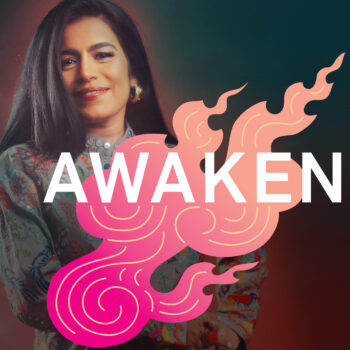
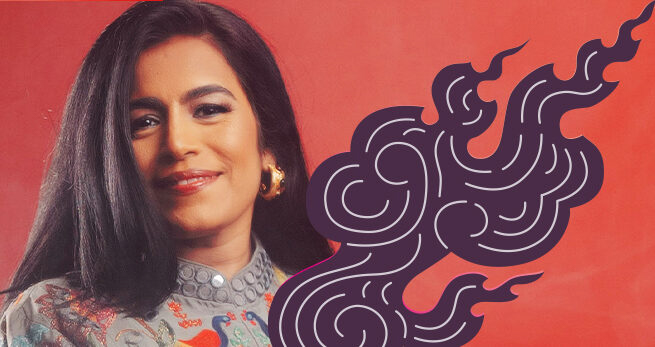
It’s often in the most challenging moments that we learn the most about ourselves and others. Not only do we have the opportunity to rewire our brains, but we get to see things with newfound clarity. From the Buddhist and neuroscientific perspectives, learning is all about allowing for curiosity and openness. What does the process of learning have to teach us?
NIGEL POOR
It started out as a curiosity about how people make a life in prison. It was sort of this idea that no matter where you are, or no matter what condition you’re in, you have this imperative to communicate with the outside world.
FALU
Writer and podcaster Nigel Poor is the co-creator and co-host of Ear Hustle, an award-winning podcast series out of San Quentin prison.
NIGEL POOR
I make it because it allows a lot of people now to—to see a world that they might not ever have the opportunity to see, and create relationships and forge different ways of thinking. I think it’s an experiment in listening and learning, and giving people the opportunity to be heard and other people the opportunity to see things in a different way.
FALU
Welcome to AWAKEN, a podcast from the Rubin Museum of Art about the dynamic path to enlightenment and what it means to “wake up.” I am singer and songwriter Falu. At the Rubin, a museum largely dedicated to art from the Himalayas, we believe art can nurture awakening. This season, we delve into the notion of life after—those big transitional moments throughout our lives that propel us into the unknown. We’ve gathered artists, writers, scientists, poets, Buddhist teachers, and others to explore key events and characteristics of a human life—from birth to death and everything in between—as well as grapple with the ultimate mystery: the afterlife.
Their stories offer insights on how to approach change with openness, even amid possible grief or joy, fear or excitement. And with art from the Rubin Museum as the connecting thread woven into the conversations, we can make even better sense of those changes. Because art has the ability to wake us up to what is possible.
In this episode: Learning. It’s often in the most challenging moments that we learn the most about ourselves and others.
In the stories to come, you’ll hear about big moments of learning and transformation and then we will reflect on what learning is from both Buddhist and neuroscientific perspectives. As host of the podcast Ear Hustle, Nigel has learned so much in the process of making this series and teaching at San Quentin, a prison in California. Her first foray was teaching an art history class there.
NIGEL POOR
Before I started going into prisons, I was educated on prisons through like bad TV and movies and bad journalism.
I assumed that people that committed crimes belonged in prison. I didn’t think very deeply about it. I mean, I didn’t assume that the criminal justice system was without problem, but I don’t think I spent a lot of time pondering the deeper issues around it. The older I got, the more I thought about how people change, and how nobody is one way. And I think that was one of the things that got me interested in going into prisons, is trying to understand who was in there, and what is it like?
And so very quickly, those assumptions were challenged. Very quickly. From the first class. I remember when I walked in for my first class, the men started coming in, and I was looking at this room. When you teach, there’s no guards around or anything. You’re by yourself. I thought, “What did I say yes to?” First of all, it’s a prison that’s all men, and I’m not crazy about men. Or, I wasn’t, at the time. And I thought, how am I going to connect with these people. But as soon as we started talking about photography, that really shifted. And I loved how photography was the bridge for us to talk about stuff. And I had people in my class that had had advanced degrees, people who had gotten GEDs. Of course, it was a range of people, but so many people were smart and creative and interesting, and very quickly my mind was expanded about who is in prison. And I realized it isn’t just, in quotes, “bad people,” that people get into all kinds of situations and end up in prison, and most of us are probably lucky that we’ve never been caught for doing stuff.
But what I found was—and this sounds so corny—there were people that weren’t very different from me, that were in prison, and that wasn’t the idea I went in with. The idea was that these were people I would never know.
FALU
But she got to know them better than she could have imagined and it led her to starting a podcast and teaching others about life on the inside. Nigel’s sense of what was possible, her ability to shift perspectives on who is in jail is similar to what happened to author and poet Michelle Tea when she opened her mind up to the possibility that she may find a new way of living in this world, one that didn’t include alcohol.
MICHELLE TEA
I remember having to call in sick to a literary event—which I never did. And even my jobs, I never really called in sick to, with hangovers. I was always self-supporting. I couldn’t afford to not have a job. I was a hardworking alcoholic. So when I would start calling in sick to work or something, I knew, I was like, “Oh man, you’re calling in sick because you did too much drugs last night and you can’t function today.” But then, to do that with work, with writing, with creative stuff. Like getting to host something I was really excited about, and then not being able to make it because my hangover was so bad I couldn’t stop shaking. I’m like, at what point do you look honestly at it, and be like, “That’s alcoholic.” You know? But it’s hard, because when you’re in the middle of it, you don’t want it to be true. I mean, I remember just thinking like, “Oh, I think I’m going through a really bad astrological transit,” and just like reading all these astrology books, right? That like, it’s going to go away, and then drinking will be fun again.
But basically it stopped being fun. It was like a desperate sort of—like maybe it’d be fun for 15 minutes, and then the sensation of craving was really became increasingly the center of it, and I became aware of the craving. I struggled for a while. I was like, “Oh, I’m just going to take a break. Because if I can take a break, I’m not really an alcoholic.” Right? So I took a break for almost a month. I rewarded myself for having abstained for so long by drinking. So it was a little short of a month. And then I couldn’t really ever get that month back again. I would try, and I would fail. And at some point I just really realized that I couldn’t stop drinking. And I wanted to, and I couldn’t. And that’s what was really scary. And thankfully, I have friends who were in recovery. I called somebody who had mentored me in my writing and they knew that I had been trying to not drink, and they asked me how it was going, and I just burst into tears. I couldn’t not be raw and real with this person. I couldn’t pretend that it was okay. I was like crying in public. I was like, “Okay, this is weird.” And they were like, “Okay, let’s go take care of this.” So they got me connected to recovery, and that’s how I got sober.
I really enjoyed recovery. I liked that it had a spiritual component to it. That puts a lot of people off. And certainly the culture is different in different cities, but in San Francisco it was a very open spirituality. It was like, bring whatever you want into that. And there were lots of people that I could relate to, and lots of queer people, lots of women, lots of people who used alcohol kind of in the same way I did. So I found a lot of camaraderie and support.
And even in people that were really different from me, I was sort of charmed, and I really loved that suddenly I would be in these rooms. Because at the end of my drinking, I was like, if you weren’t just like me, then I just, you know, didn’t trust you. Like, you had to be queer, and you had to be a feminist, and you had to be broke, or else just like you were the enemy.
I was carrying around a lot of that kind of angst. And suddenly I was in a meeting, with men, and straight people, and just rich people. And, I actually had more in common with them—I had something that was so important and so crucial to my development and to who I was, and to my survival. Like the things I had in common with them were so much more important than the ways that we were different. And that was really—I liked that. It kind of woke me up to the world in a new way that I really needed.
Things started to interest me that didn’t interest me before. I had to drop a lot of my defensive attitudes that I didn’t necessarily know were defensive attitudes.
It wasn’t about like—when I first started going, I thought, oh, everybody sits around and complains about how their life stinks now because they can’t drink anymore. Like it’s a big pity party; that’s what it is. But what it is is you’re like, oh wow, I actually don’t know how to live. Like I picked up zero life skills because I just sort of cemented all my bad coping skills with drugs and alcohol. I just sort of like really got them in there. And now, I’m going to learn how to be an adult, and live like an adult, maybe even like some adult things.
FALU
And that’s exactly what Michelle did. She went on to write multiple books, become a Guggenheim fellow, win prestigious awards, become a parent and her life turned around. She learned that she doesn’t need drugs and alcohol to be fulfilled, and she discovered a new part of herself. She realized that the people that she saw as the enemy or different were actually quite similar to her. This wake-up moment for her has given her a new perspective and way to navigate life. I know I’ve had pivotal moments where I find myself shifting my vantage point and seeing new possibilities.
Teaching and learning obviously go hand in hand but they’re also cyclical. Invariably they both give you a different perspective and poet Marie Howe needed that. She needed to change her lens, or move it at least, because a lot of difficult things were going on in her life. And she thought learning something might be a way to work through those.
MARIE HOWE
My dad had died. Well, a lot of things had happened. I had left a very destructive relationship. I was teaching high school in rural Massachusetts. It was so moving to be with them. And all I ever taught was poetry. So we just read Shakespeare and read poetry.
That’s pretty much what we did. And I had always written for my family. I had written stuff, like, you know, I just wrote things for occasions.
Some of it was doggerel and silly, and some of it was real and serious. I just didn’t know one could do that, really. You know how it is; you don’t know that world. So, yes, I read The Once and Future King, and in it, Arthur was very sad, and Merlin said, “When you’re sad, learn something.” And I—so I just thought, “Okay, I’m going to go learn something.” I called David, who was the head of the English department and said, “I need to learn something.” He said, “Well, go apply to this thing at Dartmouth I just heard about.” And I was like, “Okay,” and I did. And yes, I sat in on this poetry class, and then—I stayed. And I just—you know, I felt like I found a portal, through which I could live my life.
I’m so grateful. I do think learning something always helps to ease the loneliness and despair we can often feel, in this world. And I think the more and more people are finding out, the more we learn about the living world that isn’t us, the better we feel.
Because it’s impossible to bear being alive and knowing we’re going to die at the same time. So, we feel along the wall for a portal to some—some way to live with it. And I think poetry, as a reader, first of all, is a way of finding something that reflects that. Finding something that reflects that dialectical—zzzzzzz—you know, situation we’re in—back to us. And it’s also participating in writing it along with whatever else helps us write is a way of bearing it, too.
Once I began to write, and I found a discipline and a way of being with life, close up to life, with my cheek right against it, and trying to find a way to hold what cannot be said. And that—what cannot be said is the most important is-ness in the world to me. So trying to approach it and hold that is the great joy of my life.
FALU
Learning to write and teach and expand Marie’s knowledge of poetry became her salvation, the great joy of her life. According to highly respected Tibetan Buddhist meditation teacher and author Yongey Mingyur Rinpoche, learning is a direct path to clarity which can lead to a level of happiness.
YONGEY MINGYUR RINPOCHE
Normally, the more we learn something, of course we feel more happy, more confident,—also the knowledge has also power. Knowledge has meaningful. Knowledge clarify confusion.
And especially—when we begin to learn what we call penetrating wisdom, to go into the essence of reality, look at the nature, then actually we become more free, more happy.
Yes, of course. We are learning every day. The most important is we need to embrace this learning. We need to somehow recognize this learning, recognize we have this innate wisdom, and we need to continue it, what we call, not satisfying—“Okay, finished, now I know everything,” and then we stuck there.
So we need to like openness to learn more and more, kind of like growing, with a sense of balance, sense of openness, sense of not attached too much about our learning, but at the same time continued nonstop learning.
FALU
It’s really about allowing for curiosity, being open to what is, observing and growing from what you see. This was exactly the opportunity given to neuroscientist and author Dr. Jill Bolte Taylor one morning when she had a massive stroke. A highly successful, rising neuroscientist at Harvard, Jill woke up one day to a blood vessel that burst inside her left hemisphere. She lost everything, all her functioning, language, movement. But she also lost fear, an emotion that resides in the left hemisphere, and in its absence, she was able to observe what was happening, as a fully present being.
JILL BOLTE TAYLOR
Everyone says, “Oh my god, it must have been a terrifying experience, for a brain scientist to watch her own brain deteriorate.” And actually it was fascinating! I mean, how could it not be fascinating? It’s what I study! It’s what I’ve read—for decades of my life, of being committed to understanding it at an academic level. And here it is, happening! Circuit by circuit. Wow! And I was fortunate that the place where the hemorrhage happened was right down there where fear is located in that left hemisphere.
So once the fear went off the line—well, yeah, I lost language; yeah, I lost my individuation and my identity; yeah, I lost the right half of my body; yeah, I lost a lot of things—but wow, what an experience!
When I lost my left hemisphere, I lost all my past, all memories of my past, all emotional baggage from my past. I lost all expectations and hopes for the future. But what I was given was the present moment. And the present moment is always a perfect moment. It doesn’t have any of the baggage from where I’ve been. It has none of the fears of where I’m going. And what is is, and where I am, I am. And it’s a beautiful way, place, and time, to live a life. And although I worked for eight years to rebuild what was going on in that left hemisphere, I looked at it as circuitry. These are cells that run in circuits that then produce functions that then result in behaviors, and ultimately result in personality profiles.
What did I learn through the eyes of a brain scientist that other brain scientists don’t get to learn because they don’t get the opportunity to shut down their left hemisphere for eight years, and move into the right hemisphere, and then use the right hemisphere to rebuild a whole brain?
The goal is to learn and grow and heal from it.
FALU
In each episode, we invited one of our guests to reflect on an artwork in the Rubin Museum’s collection. For Learning, poet Marie Howe looked at a painting of Shakyamuni Buddha’s Life Story. It depicts the Buddha leaving the protection of his palace for the first time, major moments where he learned something new. Raised as a prince, he had never before seen sick or old people. So when he went outside he was exposed to the reality of aging, sickness, death and samsara—the endless cycle of birth, death, and rebirth. A lot of his teachings are based on him confronting this difficult truth. Here’s Marie reflecting on the art piece.
MARIE HOWE
Well, just looking at the manifest activity and life in this, it reminds me of walking here, through New York City!
One of the reasons I wanted to live in New York City is because suffering is evident. It’s not hidden. I grew up in the suburbs, in a big stone house, and our life was very much around the house and family. And we suffered in our family, but it wasn’t—we never saw anybody—it just was very—parochial. I imagine—it still wasn’t a place, but this young man walking out in the streets and seeing what he sees, which is just like walking from Barrow Street up to 26th Street or whatever—I mean, up Seventh Avenue. I mean, you see everything. You see old people, people sleeping on the sidewalk, people—holding hands, you know? Couples, probably 50 years old, walking along, holding hands.
Everybody was out there, today. Is out there right now.
FALU
When the Buddha went outside of the palace, his brain was suddenly exposed to so much, new things that he had never seen before, never experienced before. And with this new knowledge came choice. According to neuroscientist Dr. Kay Tye, we have a choice of what we expose ourselves to.
KAY TYE
Every experience that we have, everything that forms a memory, every time I rehearse a behavior and it’s better next time, my brain has changed a little bit. Even things that you don’t think of as changing your brain, like, I rented a car, and this car has the—the buttons and the knobs are in different places, or whatever, and I drive the car once; actually my brain’s slightly different, you know? It’s like all in there.
So I guess that’s what I would define, as learning.
FALU
So learning is a process of wiring and re-wiring our brain. It’s not often that we get the opportunity to do that in a conscious way. Meditation is another great way to train the mind, and to literally change the circuitry of the brain. Meditation teacher and author Spring Washam learned this on her first retreat. A huge moment of learning and change for her. And like so many things, it happened by chance, one small, easy to miss moment that can change the course of everything.
SPRING WASHAM
I heard about this 10-day retreat, in the desert, and I somehow got the money together to go, and I got myself down there. I didn’t know anything about Buddhism, the dharma. All I knew was that they teach you how to meditate. And when I went on the retreat, I met my teacher, Jack Kornfield. I sat for that 10 days, and my mind finally got quiet, and I began to feel present for the first time probably in my entire life, or understand what present moment was.
And you start to see how out of control everything is. But that you can pay attention, and you could move your awareness in your body, and you could start to practice something that feels like the end of suffering—“Yes, I’ll come back to the present. I’ll cut through.” So, that’s what happened. I sat and trained my mind, and then I walked, and I felt my body. And something really important happened—this joy, of being, started to appear, and this peace, for the first time in my whole life! So it was tasting it. The taste of freedom! Even if was just momentary, it’s still powerful!
I think like the practice of just following your breath. I mean, this, for people new to meditation, or been practicing, the basics can take you all the way to the goal. We don’t have to get fancy. It’s just sitting down, and following your breath, because here’s where you’ll learn. Every time your mind gets fixated and lost in these stories of pain, you come back.
You have to renounce your insanity, and actually renounce—we like our soap operas, you know? Our minds are just like Housewives of Beverly Hills, in some version or another. So, I think that just coming back, again, and again, and again, it trains us to let go.
FALU
Letting go and learning go hand in hand. When we learn something, we are invited to let go of our previous way of seeing. And that letting go is not only a gift to ourselves but it’s also a gift to those around us because it’s an opening, an allowing for what it is rather than a clinging onto how we think something should be. The more we let go and allow ourselves to learn, the greater our capacity to connect and be willing to see what is around us.
You just heard the voices of Marie Howe, Nigel Poor, Yongey Mingyor Rinpoche, Dr. Jill Bolte Taylor, Michelle Tea, Dr. Kay Tye, Spring Washam, and me, Falu. To see the artwork discussed in this episode, go to rubinmuseum.org/awakenpod.
You can continue the conversation by following us on Instagram @rubinmuseum. And if you’re enjoying the podcast, leave us a review wherever you listen to podcasts, and tell your friends.
AWAKEN Season 3 is an eight-part series from the Rubin Museum. Come visit us in New York City, or explore rubinmuseum.org to learn more about the Museum and about art, cultures, and ideas from the Himalayan region.
AWAKEN is produced by the Rubin Museum of Art with Jamie Lawyer, Sarah Zabrodski, Christina Watson, Gracie Marotta, and Tenzin Gelek in collaboration with SOUND MADE PUBLIC including Tania Ketenjian, Sarah Conlisk, Philip Wood, Alessandro Santoro, and Jeremiah Moore.
Original music has been produced by Hannis Brown with additional music from Blue Dot Sessions.
AWAKEN Season 3 and the exhibition Death Is Not the End are supported by the E. Rhodes and Leona B. Carpenter Foundation, Ellen Bayard Weedon Foundation, Robert Lehman Foundation, and The Prospect Hill Foundation. The Rubin Museum’s programs are made possible by the New York State Council on the Arts with the support of the Office of Governor Kathy Hochul and the New York State Legislature. Death Is Not the End is supported in part by the National Endowment for the Arts.
Thank you for listening.
AWAKEN Season 3 is hosted by singer and songwriter Falu. Guests featured in this episode include poet Marie Howe, artist and podcaster Nigel Poor, Tibetan Buddhist meditation teacher and author Yongey Mingyur Rinpoche, neuroscientist and author Dr. Jill Bolte Taylor, author and poet Michelle Tea, neuroscientist Dr. Kay Tye, and meditation teacher and author Spring Washam. Read more about our guests below.
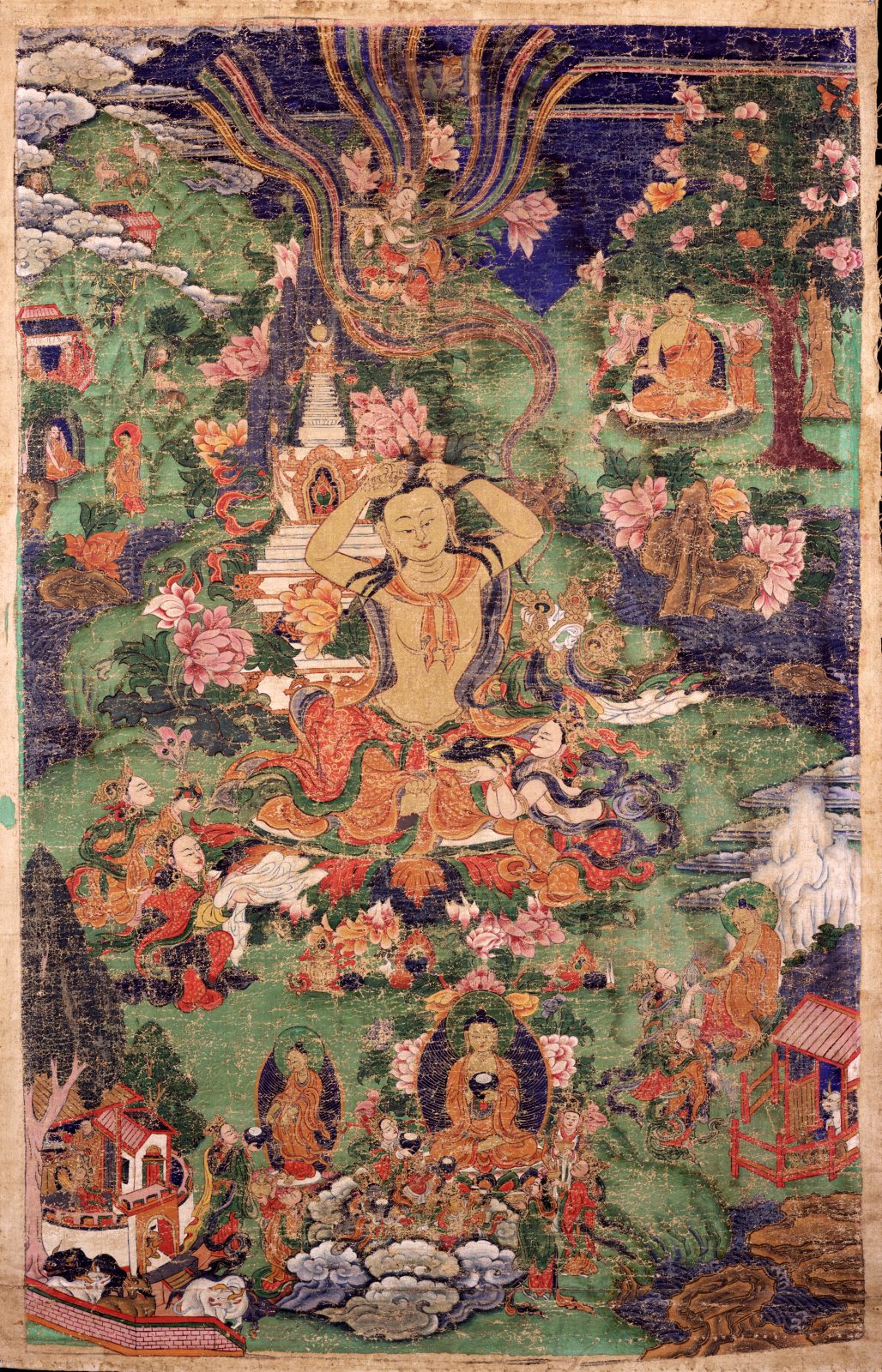
Renunciation, from a set of the Twelve Deeds of the Buddha, After a woodblock carved in Derge, Kham region, eastern Tibet, composition attributed to Purbu Tsering of Chamdo (active ca. late 19th century); Kham Region, Eastern Tibet; 20th century; Pigments on cloth; Rubin Museum of Himalayan Art, gift of the Shelley and Donald Rubin Foundation; F1997.42.2
Buddha Shakyamuni is an epithet for Siddhartha Gautama, the founder of the Buddhist religion. While the exact dates of Siddhartha’s life are debated, scholars generally place him in the sixth to fifth century bce. According to early Buddhist narratives, Siddhartha was born a prince of the Shakya clan in what is now northern India and southern Nepal. Choosing to leave his palace and family for a life as a religious ascetic, Siddhartha achieved enlightenment while meditating under the bodhi tree. Siddhartha spent the rest of his life as a wandering teacher, gathering disciples to form the early Buddhist monastic community (sangha). Buddha Shakyamuni is revered all over the Buddhist world today. Learn more.
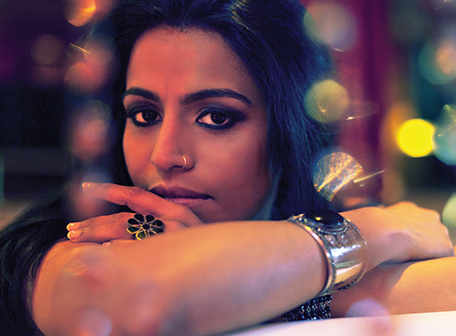
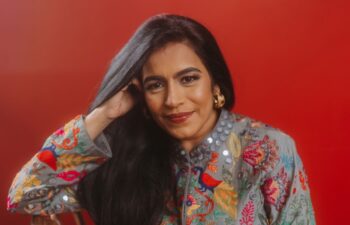
Falu is a Grammy award-winning, internationally recognized vocalist, composer, and educator known for her ability to seamlessly blend a signature modern inventive style with a formidable Indian classically shaped vocal talent. Falu’s career in the United States has led to a series of collaborations with Yo-Yo Ma, Wyclef Jean, Philip Glass, Ricky Martin, Blues Traveler, and A. R. Rahman, among others. She was appointed Carnegie Hall’s ambassador of Indian Music in 2006, and her shows at Zankel Hall have consistently sold out. Falu’s highlight performances include the 2022 GRAMMY Awards Premiere Ceremony and former President Obama and First Lady Michelle Obama’s White House State Dinner. During Diwali in 2022, the Mayor of New York City Eric Adams awarded her a citation for successfully representing immigrants in the city. Later that year she received a proclamation by the NYC Council “for fostering greater harmony around the world.”
Described by the New York Times as “East and West, ancient and modern” and named one of the twenty most influential global Indian women by the Economic Times, Falu continues to record and perform globally, and she serves as the Board of Governor for the Recording Academy’s New York Chapter.
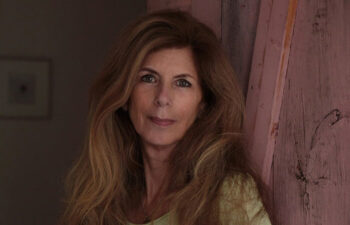
Marie Howe is the author of four volumes of poetry: Magdalene: Poems (2017), The Kingdom of Ordinary Time (2009), What the Living Do (1997), and The Good Thief (1988). She is also the co-editor of a book of essays, In the Company of My Solitude: American Writing from the AIDS Pandemic (1994). From 2012 to 2014, she served as the Poet Laureate of New York State. She is the poet in residence at the Cathedral Church of St. John the Divine and a chancellor of the Academy of American Poets.
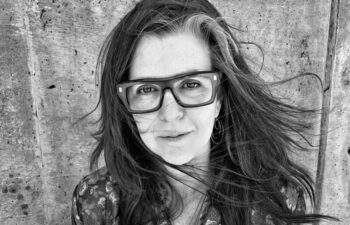
Nigel Poor is a visual artist whose work explores the various ways people make a mark and leave behind evidence of their existence. Her work has been exhibited nationally and internationally and can be found in various museum collections including SFMOMA, de Young Museum, and Corcoran Gallery of Art. She is also a professor of photography at California State University, Sacramento. In 2011 Poor got involved with San Quentin State Prison as a volunteer teacher for Mount Tamalpais College (formerly the Prison University Project). She is the co-creator and co-host of the Pulitzer Prize–nominated prison-based podcast Ear Hustle and the co-author of This Is Ear Hustle: Unflinching Stories of Everyday Prison Life.
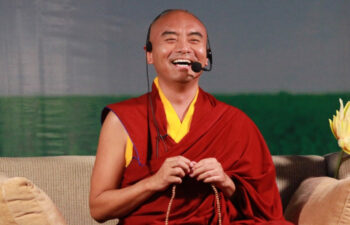
Yongey Mingyur Rinpoche is a recognized tulku of the Kagyu and Nyingma lineages of Tibetan Buddhism, a teacher, spiritual leader, and bestselling author. He possesses the rare ability to present the ancient wisdom of Tibet in a fresh, engaging manner. His profound yet accessible teachings and playful sense of humor have endeared him to students around the world. Rinpoche’s teachings weave together his own personal experiences with modern scientific research in relation to the practice of meditation. He has authored several books including two bestsellers: The Joy of Living: Unlocking the Secret and Science of Happiness, which has been translated into over 20 languages, and In Love with the World: A Monk’s Journey Through the Bardos of Living and Dying. His recent TED Talk is titled “How to Tap into Your Awareness—and Why Meditation Is Easier Than You Think.” Rinpoche teaches extensively around the world and oversees dharma centers, including three monasteries in Nepal, India, and Tibet, and the Tergar Institute in Kathmandu; Tergar meditation communities on six continents; numerous schools in Nepal; and social engagement projects related to health, hunger, hygiene, the environment, and women’s empowerment issues in the Himalayas.
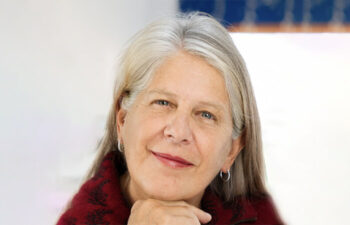
Dr. Jill Bolte Taylor is a Harvard-trained and published neuroscientist. At the age of 37 she experienced a severe stroke that wiped out the left hemisphere of her brain. She completely rebuilt her brain over the course of eight years. Her memoir, My Stroke of Insight, spent 63 weeks on the New York Times bestseller list, and her most recent book, Whole Brain Living, helps people find their own mental wellness. In 2008, Time magazine named her one of the 100 Most Influential People in the World, and she was the premier guest on Oprah’s Soul Series.
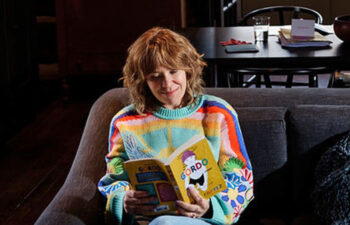
Michelle Tea is the author of countless books, including the Lambda Literary Award–winning Valencia and the PEN America award-winning Against Memoir. She has been awarded honors from The Rona Jaffe Foundation and the Guggenheim Foundation for her writing. As creator of Drag Queen Story Hour she has been honored with awards from the California Library Association and Logo Television. After curating imprints with City Lights Publisher and The Feminist Press, in 2023 Tea created DOPAMINE Books, an independent press.
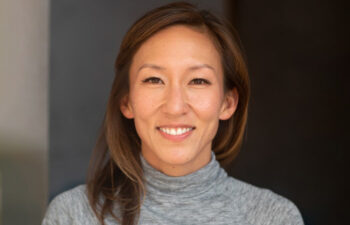
Dr. Kay Tye earned her bachelors from MIT, majoring in brain and cognitive sciences, and her PhD for thesis work with Patricia Janak at the University of California San Francisco, focusing on how the amygdala undergoes plasticity for reward learning. She did her postdoctoral training with Karl Deisseroth at Stanford University, where she pioneered the use of projection-specific optogenetic manipulations, a mainstay of circuit neuroscience, and used this approach to dissect anxiety circuits in the amygdala. She started her own lab at MIT in 2012, investigating the neural circuit mechanisms of emotional valence. In 2017 she won the NIH Director’s Pioneer Award to study social homeostasis, a conceptual framework she formalized in 2019. Dr. Tye moved her lab to the Salk Institute in 2019 and became Wylie Chair Professor of the Systems Neurobiology Laboratory. In 2021 she became a Howard Hughs Medical Investigator and continues to investigate the neural bases of emotional valence and social homeostasis on the circuit and systems level.
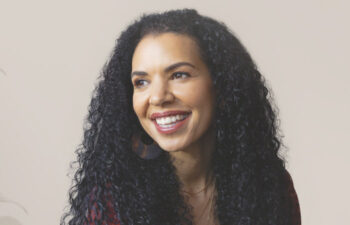
Spring Washam is a meditation teacher, author, and visionary leader based in Oakland. She is the author of A Fierce Heart: Finding Strength, Courage and Wisdom in Any Moment and her newest book, The Spirit of Harriet Tubman Awakening from the Underground. Washam is considered a pioneer in bringing mindfulness-based healing practices to diverse communities. She is one of the founding teachers at the East Bay Meditation Center. Washam received extensive training by Jack Kornfield, is a member of the teacher’s council at Spirit Rock Meditation Center in northern California, and has practiced and studied Buddhist philosophy in both the Theravada and Tibetan schools of Buddhism since 1999. In addition to being a teacher, she is a shamanic practitioner and has studied indigenous healing practices since 2008. She is the founder of Lotus Vine Journeys, an organization that blends indigenous healing practices with Buddhist wisdom in South America. Her writing and teachings have appeared in many online journals and publications such as Lion’s Roar, Tricycle, and Beliefnet. Washam has been a guest on many popular podcasts and radio shows. She currently travels and teaches meditation retreats, workshops and classes worldwide.
Get the latest news and stories from the Rubin, plus occasional information on how to support our work.